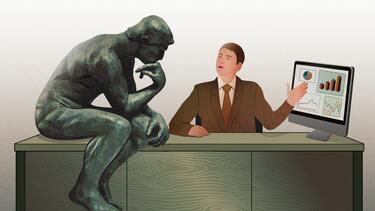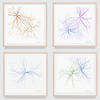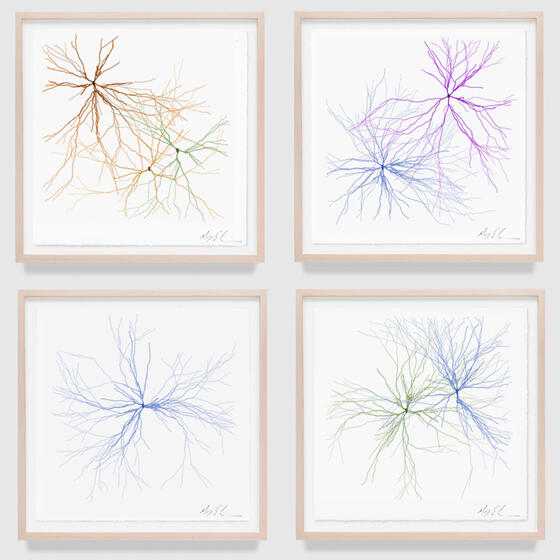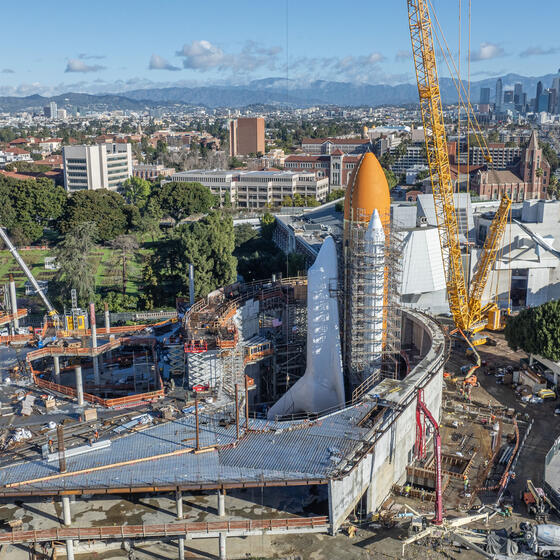The Business Behind the Arts
Every cultural institution has a mission that goes beyond the bottom line—enriching a community, preserving human achievement, delivering joy. But that mission also depends on business considerations—assembling financial and human capital, connecting with customers, considering long-term sustainability. We talked with leaders in the arts about the large and small strategic choices that their institutions must make to survive and succeed.

Creating the Bilbao Effect
The startling success of the Guggenheim Bilbao, which launched in 1997, spawned a new term: “the Bilbao Effect,” as shorthand for the impact a cultural institution can have on the surrounding city. Thomas Krens ’84, Gail Harrity ’82, and others who were present at the inception look back on how industry, marketing, government, art, and architecture came together to make history.

Why Do Museums Matter?
Daniel Weiss ’85, former president and CEO of the Metropolitan Museum of Art, discusses the distinctive joys and challenges of leading mission-driven organizations.

Museum and Community: Connecting with a Diverse City
The Museum of Fine Arts, Houston is one of the largest museums in the United States; it is also a local institution in the second-most-diverse large city in the country. Bradley Bailey ’10, the museum’s curator of Asian art, explains how the museum collaborates with immigrant communities to expand the understanding of Asian art.

Museum and Community: Building on What’s Beloved
Generations of kids have grown up at Durham’s Museum of Life and Science. CEO Carrie Heinonen ’97 is working to expand the museum’s reach by connecting with underserved communities and positioning the institution as a starting point for the region’s STEM workforce pipeline.

Museum and Community: Constructing Change
Under the leadership of executive director Zoe Kahr ’06, the Memphis Art Museum is moving into a striking new building under a new name, aiming to use art to help catalyze economic growth and civic energy in the city’s downtown.

Video: Making the Music Happen
Sam Linden ’19 describes how he built the skills for a career at the intersection of business and the arts.

Beauty, Power, Art, and Finance
Art, money, and power twist together in complex ways, in a dynamic that may be older than humans. In his research, Yale SOM’s William Goetzmann traces the social meaning of art and money and the ways they set pecking orders, create art superstars, and blow up into senseless bubbles.

Selling Art in an Age of Disruption
Ariel Hudes ’18 is vice president for strategic projects and operations at Pace Gallery and the head of Pace Verso, which helps the gallery’s artists incorporate technology into their work. We talked to her about the evolving business of art and how artists are using AI tools to execute projects that wouldn’t otherwise be possible.

The Long—Really Long—Buildup
More than 30 years ago, Jeffrey Rudolph ’78 developed a master plan to build the California Science Center into a center of science, learning, and discovery.









